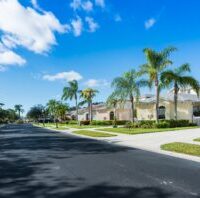Which Type of Property Is Subject to Ancillary Probate?

Ancillary Probate for Non-Resident Property Owners in Florida
Ownership of property in Florida by non-residents is a common occurrence, particularly among those from colder climates seeking a warmer abode during winter months. Florida properties may include houses, condominiums, vacant land, or timeshares held solely in the non-resident’s name.
Upon the death of a property owner who resides out of state, Florida law mandates the opening of an ancillary probate case. This process allows the estate’s personal representative to manage the sale or transfer of the Florida property.
Scope of Ancillary Probate for Non-Resident Decedents
Ancillary probate in Florida encompasses not only real estate. As set forth by Florida Statute §734.102, an ancillary probate is mandatory if the non-resident dies:
- leaving assets in this state;
- leaving credits due from residents in this state; and
- leaving liens on property in this state.
This may also include other types of property registered in the state, such as vehicles, boats, mobile homes, and bank accounts held by the decedent.
Bank Account Holdings and Florida Ancillary Probate
Non-residents may indeed hold bank accounts in Florida, including those for businesses registered with the Florida Secretary of State. Such accounts, whether with a local Florida bank or a non-Florida bank with local branches, may be subject to inclusion in ancillary probate proceedings upon the owner’s passing.
Addressing Creditors in Ancillary Probate
In accordance with Chapter 733 of the Florida Statutes, an estate’s personal representative is responsible for ascertaining and notifying potential creditors of the probate action, typically via newspaper publication. Creditors are then allowed a statutory period to file claims. Following the liquidation of the Florida assets, the proceeds from the ancillary probate sale are used to satisfy valid creditor claims before any remaining funds are disbursed to the heirs.

